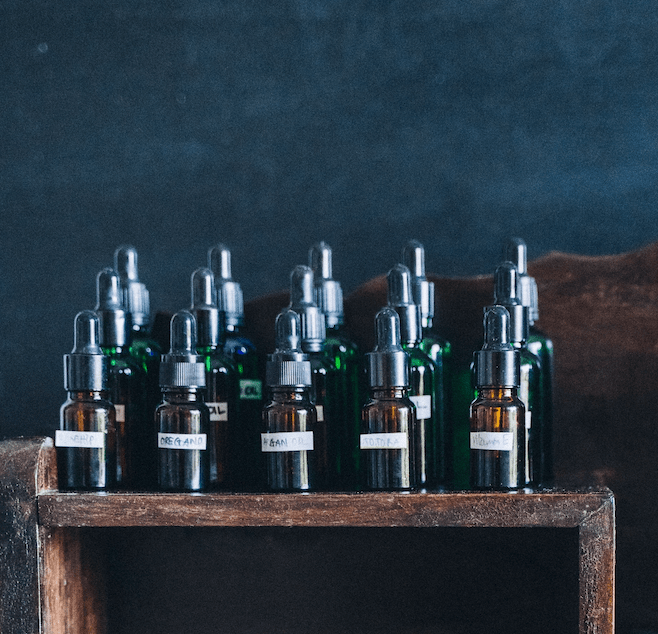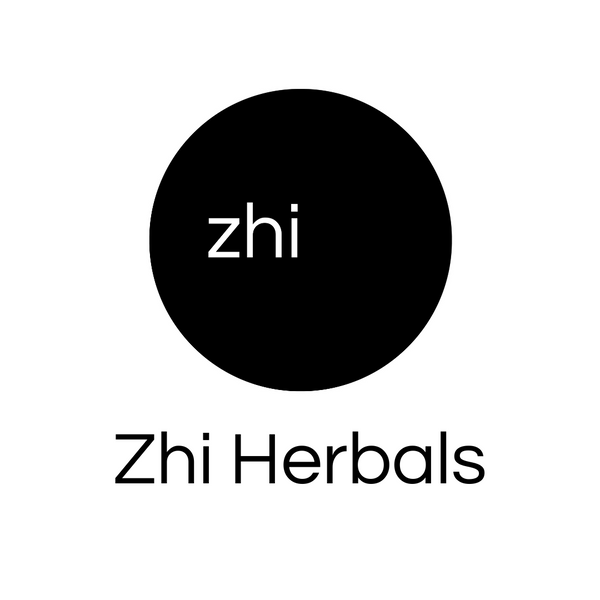
Best Alcohol for Tinctures Guide
Share
Best Alcohol for Making Tinctures
Making tinctures on your own is a simple way to get high-quality herbal medicines in bulk. But sometimes, the specifics can be a bit confusing! One of the most common questions in tincture making is how to know which type of alcohol to use for different herbs.
In this article, we will give you all the information that you need to decide which type of alcohol to choose for making your own tinctures at home. We will also go over general guidelines for using different plant parts in which kinds of alcohol.
If you are new to making tinctures, make sure first to check out our post on how to make herbal tinctures for more detailed directions on tincture making. Now, let's dive into the details of the best types of alcohol for different tinctures!
Alcohol Options for DIY Tinctures
Tinctures can seem complicated at first, but they are actually quite simple to make at home once you get the hang of it! There are three general categories of alcohols that can be used for tinctures: wine, spirits, and strong spirits. Each alcohol is ideal for different plant parts and herbs.
You may notice that beer is not included in this article. Although beer has historically been brewed with herbs and can be infused, it generally does not have a sufficient alcohol content to make tinctures. The concentration of alcohol in beer usually ranges anywhere from 3-14%, which barely scrapes the minimum amount you need. Wine is typically 12-15% alcohol, but can reach anywhere up to 25%, especially in the case of dessert wines and some fortified wine.
1. Wine
To make a tincture with wine, you typically need at least a 12.5% ABV or higher. This alcohol percentage is ideal for more delicate herbs, such as chamomile, lavender, red lotus, blue lotus, holy basil, and catnip. In general, if you are planning to tincture a leaf, stem, or flower, wine is an excellent choice! You can even play around with infusing flowers and spices to make a delicious flavoured herbal wine.
Since wine has a lower percentage of alcohol, it has a higher tendency to expire if you use certain plants with higher water content. So, be cautious of using berries or fresh plant materials with this alcohol type since it may expire quickly or go rancid.
2. Spirits
The most common choice of spirits for at-home tincturing is vodka. Vodka has a more neutral taste and is generally inexpensive, making it an ideal choice for tinctures. Spirits are usually approximately 40% ABV, which is the perfect percentage to extract all of the delicate constituents that you would get from a wine extraction, in addition to tannins, water-soluble glycosides, and some alkaloids.
In addition to vodka, you can also use gin, rum, whiskey, or any of your other favourite alcohols as solvents in your extraction. Each spirit will give you a unique flavour. This category of alcohol is ideal for infusing herbs such as gotu kola, mullein leaf, lemon balm, burdock root, ashwagandha root osha root, or yohimbe bark. A good rule of thumb, if you don't know what alcohol to use for an individual herb, is to opt for alcohol with at least 40-50% ABV since it is generally a good fit for almost all dried herbs.
3. Strong Spirits
Strong spirits are typically 50% ABV or higher. Although they may be harder to find for sale, a strong spirit is excellent for tincturing resins, gums, and dense barks or roots. It is also ideal for fresh plant material and berries, which tend to have higher water content and need a stronger spirit to ensure there is no bacterial growth. It is important to remember that fresh or higher water content herbs will dilute your alcohol over time, so the final percentage will be lower than what you begin with.
A higher alcohol percentage will help you extract more of those potent plant juices to create stronger herbal medicine. You can use this strength with most herbs, but alcohol of this strength isn't typically necessary since it is expensive and harder to come by. Try making a tincture of frankincense with alcohol of at least 60% alcohol.
Choosing A Spirit
The best spirits for making DIY tinctures can range widely in alcohol content, so read the label whenever you look for a new brand. In general:
- Vodka contains around 40% alcohol, but this can range anywhere between 35% and 95%. If you need the higher concentrations to make root or resin tinctures, shopping around online can help you find the best selection of choices
- The typical ABV range for gin is from 37.5% to 50%
- Brandy ranges from 35% to 60%
- Rum is usually 40% alcohol, but reaches up to 80% depending on the brand
- Whiskey comes in at a minimum of 40% and maxes out at 80% for some distilled Bourbon whiskeys
- Neutral grain spirits can be harder to find and range from 85-97%. If you’re looking for these, try asking around at your local distillery
- Some of the most potent spirits are almost herbal tinctures in themselves, such as absinthe (wormwood and other botanicals) or arak (anise).
A Few More Tips On Choosing The Best Alcohol To Tincture Your Herbs:
- If you decide on a spirit with 40-50% alcohol content, remember to finely chop or grate any roots and rhizomes that you use. This will increase the surface area-to-volume ratio, so more beneficial phytochemicals are extracted.
- Mushrooms can be especially hard and woody, such as reishi, so treat them like bark or dense roots.
Tannins And Tinctures
It’s important to remember that wine is rich in tannins. These are large molecules that can latch on to smaller ones, such as alkaloids, minerals, and amino acids. To get the most benefits out of your wine tincture, you may need to use low-tannin varieties. As a general rule, tannins leave an astringent mouthfeel, which is dry and somewhat furry feeling. Red wines will typically contain more tannins than white wine.
But is there much variation? Yes! A study on wine tannin content found that Cabernet Sauvignon had the highest average levels, from 557-2045mg/L depending on the method used. Pinot Noir came second, with 362-1367mg/L. The varieties with the lowest tannin levels were Frontenac and Petite Pearl, with 48-412mg/L and 110-651mg/L, respectively. Spirits typically contain little to no tannins.
Herbal remedies with high alkaloid contents that we stock at Zhi Herbals include Oregon grape root, fenugreek, ashwagandha, and yohimbe. Caffeine, which gives guarana seed its stimulant effect, is a purine alkaloid, so stick to vodka or another spirit with no tannins if you want to make a stimulating tincture.
Choosing Alcohol By Flavour
Of course, spirits have their own flavours, so are compatible with different herbs – unless you want to play it safe with neutral tasting vodka. Although our main intention when making tinctures is to get the most medicinal benefits out of herbs as possible, you don’t want incompatible, gross-tasting flavour combinations, especially if you plan to gift your herbal creations to friends or family.
A Few General Notes For Choosing The Best Tasting Alcohol For Herbal Tinctures
- Gin has subtle notes of juniper berries, its principal ingredient. Cinnamon, coriander, citrus, and ginger are other common accompaniments
- Scotch whiskey is usually smoky thanks to the use of peat. You may also find notes of honey, nuts, and fruit peels.
- Bourbon whiskey is based on corn, but woody, honey, and berry notes commonly develop during barrel aging
- Rum has a toasted sugar flavour, and may have added spices or fruit flavours.
- Brandy is a diverse category of alcohol. There are many regional variations from around the world depending on the type of grapes or other fruit it’s made with. Brandy is generally fruity and somewhat sweet when young, but as brandy increases in years aged it can pick up oak or other woody notes
If taste is an important factor, finding the right pairings of herbal remedies and alcohol may take some trial and error. We recommend infusing roots and bark, such as ashwagandha or yohimbe, in woody and smoky spirits. Gin, rum, and others that use medicinal herbs as ingredients are very compatible with tinctures of the same botanical material. A juniper tincture is well-suited to gin, while rum with subtle ginger or cinnamon notes will fit ginger or cinnamon tinctures.
On the other hand, bitter or pungent herbal remedies could fit better with strong, sweet alcohol. Some traditional preparations of turmeric include cinnamon, ginger, and/or honey, so consider spirits with these flavour notes. If you want to take bitter herbs for their digestive health benefits, don’t mask the bitter taste because it may be responsible for stimulating digestion.
What About Making Tinctures With Glycerol?
Glycerine, or glycerol, is technically an alcohol, just of the non-intoxicating variety. It can be used as a medium for extracting herbal remedies and is an especially great choice if you are a recovering alcoholic, do not use alcohol at all for religious reasons, or your herb of choice contains medicinal components that alcohol may degrade. Glycerol extracts generally use a solution containing 75% glycerol and 25% distilled water. We recommend extra caution around heat and light to prevent rancidity.
Why You Should Choose Organic Herbs And Medicinal Mushrooms
Choosing organic herbs is essential, regardless of whether you are making tinctures out of leaves, flowers, roots, bark, or resin. The vast majority of pesticides are stable in alcohol, and if they are extracted from the herbal material, they can contaminate your homemade remedy. In fact, a study of 89 pesticides found that only three substances broke down over a six-hour period. As pesticides can damage your nervous, endocrine, reproductive, respiratory, and immune systems, as well as your DNA, they can directly work against your health goals or cause new problems. Other toxins, known as persistent organic pollutants (POPs), are poorly soluble in water but may be drawn out by other solvents such as alcohol.
Ready to Make Your Own Tinctures? – Get Bulk Herbs in Canada from Zhi Herbals
Making your own tinctures is a fun DIY project and an excellent way to get high-quality herbal medicines while saving money. Commercial products often have various additives or preservatives, and you don't always know what you are getting. But when you make your own tinctures, you can be 100% certain of the ingredients, plus you get to infuse a little bit of your own unique energy.
If you are ready to take your tinctures to the next level, make sure to check out our high-quality bulk herbs. We source our herbs from organic farms and sustainability minded wildcrafters, giving you the best and freshest materials for your tinctures.
Related Articles
References
1. Watrelot A. A. (2021). Tannin Content in Vitis Species Red Wines Quantified Using Three Analytical Methods. Molecules (Basel, Switzerland), 26(16), 4923. https://doi.org/10.3390/molecules26164923
2. Nemoto, S., Takatsuki, S., Sasaki, K., & Toyoda, M. (1997). Kokuritsu Iyakuhin Shokuhin Eisei Kenkyujo hokoku = Bulletin of National Institute of Health Sciences, (115), 86–92.
3. Sears, M. E., & Genuis, S. J. (2012). Environmental determinants of chronic disease and medical approaches: recognition, avoidance, supportive therapy, and detoxification. Journal of environmental and public health, 2012, 356798. https://doi.org/10.1155/2012/356798

1 comment
Very helpful information. Thank you.